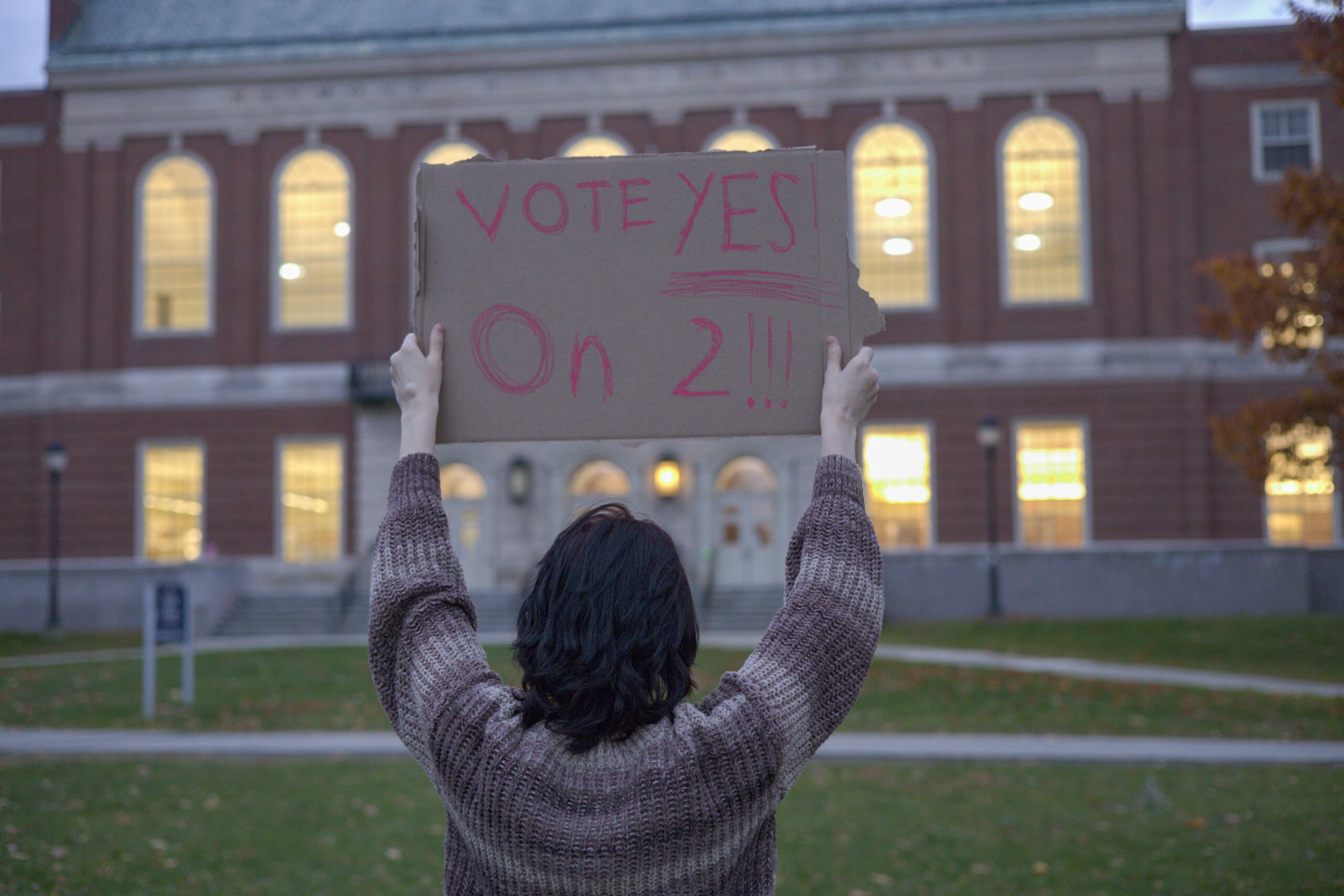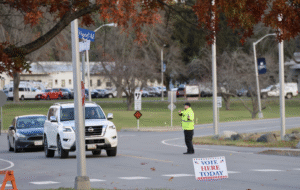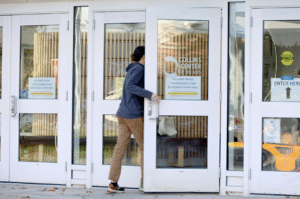Maine residents who vote on Nov. 4 will be asked if they support or oppose implementing a statewide red flag law, which seeks to prevent gun violence by imposing stronger regulations. Specifically, this question introduces the Extreme Risk Protection Disorder (ERPO) act.
An ERPO is a petition filed to the court in the interest of temporarily or permanently prohibiting another citizen from possessing a firearm or other deadly weapon. The person filing must be a member of law enforcement or a relative/housemate of the individual in question.
The petitioner must submit an affidavit listing their allegations, or reasoning as to why the person filed against is a danger to themselves or others. They are also asked to include what weapons they believe the person to have and where they may be located. If a judge rules in favor of the petitioner, the person with a weapon is expected to surrender it voluntarily, otherwise a search warrant would likely be issued to retrieve them.
A hearing is scheduled within two weeks of the petition being filed. When the ERPO period ends, weapons can only be returned once there is proof the individual no longer poses a risk to public or personal safety.
Maine currently has a yellow flag law. This regulation is less strict in nature. It requires concerned family members or housemates to first approach local law enforcement, who are authorized to petition the court.
Yellow flag law also enforces a mental health evaluation to determine whether or not the individual is of sound mind. Without the completion of this test, weapons cannot be apprehended.
Everytown For Gun Safety outlines the specific firearm regulations in each state. On the website, Maine is ranked at 22nd in the country for gun-law strength based on its findings.
After the Lewiston shooting in October of 2023, some Mainers have called for red flag law, insisting that it could have prevented the tragedy that took 17 lives. The perpetrator, Robert Card, was in the midst of a psychological crisis when the mass shooting took place. His family member later said that law enforcement was not responsive to their concerns. A red flag law would have allowed them to petition the court directly.
“[The Card family’s] role in warning authorities about Card’s failing mental health and erratic behavior has been detailed in police reports and in testimony given by police and Army officials,” reported the Portland Press Herald on May 16, 2024.
Others, including Gov. Janet Mills, warn voters that the ERPO act may actually cause more harm than good. She published a letter to constituents in which she stated that correcting unsafe situations should not be a responsibility of civilians. Mills specified that only law enforcement is responsible for preventing crime because they are trained and have access to more information.
“If there is a potentially dangerous situation, I want the police involved as soon as possible because it’s their responsibility, not yours, to deal with dangerous people,” said Mills in her letter.
The Maine Campus published an online survey for community members to share their thoughts on Question 2.
Jessalyn Haigis is a third-year student at the University of Maine studying wildlife ecology. She responded in favor of the ERPO act, stating that gun violence was previously uncommon in Maine prior to the Lewiston shooting. She feels limiting rights to deadly weapons is a small price to pay for public safety and that the country as a whole should enact similar measures.
“Maine citizens love their guns, but they also love their friends and family. A gun owner should not be concerned about this law unless they themselves are already a threat to others,” said Haigis.
Bangor resident Mitchell Cooper, 41, is against the ERPO act because he feels it disregards the true problem at hand. If yellow flag laws are not successful, that could mean they simply are not being practiced properly. Instead of incorporating a stricter law that could be misused out of spite as opposed to genuine concern, Cooper feels it makes more sense to lean on the one we have.
“Given the current aims of this administration, I fear this law could be used against minority groups to disarm them before unconstitutional actions,” said Cooper.
Trenton resident Barbara Acosta, 67, responded in favor of the ERPO act, particularly because red flag law would make it easier for people to help their loved ones in crisis and the community as a whole, thus preventing “any more needless tragedies.” She added that this law does not strip people of their gun rights, but rather preserves it for those who use weapons appropriately.
Professor of political science at UMaine Rob Glover encourages students to participate in this referendum election and others like it because it puts laws in the hands of Maine constituents. Some examples he included of state-wide decisions include same-sex marriage, cannabis legislation and ranked-choice voting.
Glover also noted that the Lewiston shooting, while particularly unprecedented in Maine, was not an isolated instance of gun violence aside from its scale.
“We see guns being used at alarming rates in suicide, in domestic violence situations,” said Glover. “So this is something that is impacting our communities and red flag laws are one proposal to address it.”

















